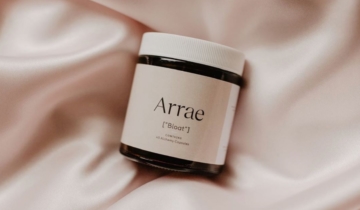Lately fennel has been a favorite addition to Katherine’s salads and for good reason. Not only is fennel extremely healthy and delicious (it tastes like liquorice, so it’s definitely an acquired taste for some)but it also has medicinal properties that have been used for centuries in many different cultures.
BENEFITS OF FENNEL
Fennel is a root vegetable that’s very high in fiber, vitamin C and potassium as well as being a great source of iron, calcium, copper, zinc and selenium, vitamin A, vitamin B6, vitamin K and folate. Whether you’re eating the fennel seeds, bulbs, stalk or leaves, the entire plant is rich in nutrients and advantageous for our overall h
Supports Skin Health
The high levels of vitamin C in fennel are very beneficial for the skin. Vitamin C is one of the powerful antioxidants found in fennel and it helps fight against free radical damage linked to premature aging. Vitamin C helps maintain healthy skin and lessen the appearance of wrinkles as well as aiding with development of collagen, all of which help improve the skin’s aging process.
Assist with Digestion
We all need fiber in our diets to maintain a healthy digestive system and fennel is a great source. Fiber is important because it helps get those bowels moving and eliminate toxins from the colon. Fennel is even considered as a natural remedy for acid reflux because it helps balance the pH levels in the stomach. Some people chew on fennel seeds which releases gastric oils in order to help with digestion and heart burn after a meal.
Enhances Weight Loss
Since fennel has so much fiber it can help you feel satiated faster and longer. Fiber is very filling and does not have calories since our bodies cannot break it down which is why fennel is the perfect food to eat when you are trying to lose weight.
Can aid with Colicky Babies
Having a colicky baby is extremely difficult. Unfortunately, there isn’t one remedy that works all of the time or for every baby. That being said, one potential natural solution for breast feeding moms is to drink fennel tea. Since fennel aids with digestion, it can potentially help soothe the baby especially if they are experiencing intestinal discomfort. Fennel seed oil is also sometimes used but since there is no specific dose for infants it should definitely be discussed with a paediatrician beforehand.
Known as a Galactagogues
Consuming fennel is often suggested as a way to help increase milk production which is why it’s known as a galactagogues and why it’s consumed by many breast feeding mothers around the world.
Encourages Eye Health
Fennel is very helpful for maintaining eye health and preventing macular degeneration, the leading cause of age related vision loss. Fennel is loaded with vitamin C, flavonoids and other vitamins and minerals, all of which help improve eye sight, reduce inflammation and maintain healthier vision.
Promotes Healthy Bones
Fennel is good for our bones. Packed with calcium, magnesium, phosphorus and vitamin K – all of these are vital for having healthy and strong bones. In addition, fennel is a great source of calcium for anyone with a deficiency.
Lowers Blood Pressure and Reduces Risk of Heart Disease
With a high content of potassium and low levels of sodium, fennel can help lower blood pressure. The high levels of fiber contribute to lowering cholesterol and the Vitamin C and folate help protect overall heart health. Together, all of these attributes makes fennel a great food source for helping fight cardiovascular disease.
Helps Prevent Cancer
Anethole which is found in fennel, has been shown in some studies to help with reducing inflammation and cancer cell growth. Fennel also contains several anti-inflammatory nutrients including selenium, which is important because inflammation is one of the causes for many diseases and cancers.
Improves Menopausal Symptoms
Although more research still needs to be conducted on this topic, some studies have shown that fennel can act as a natural remedy improve common menopausal symptoms such as sex drive, hot flashes and night sweats.
Fennel is very versatile. It can be consumed in several ways (





 No products in the cart.
No products in the cart.
Comments (1)